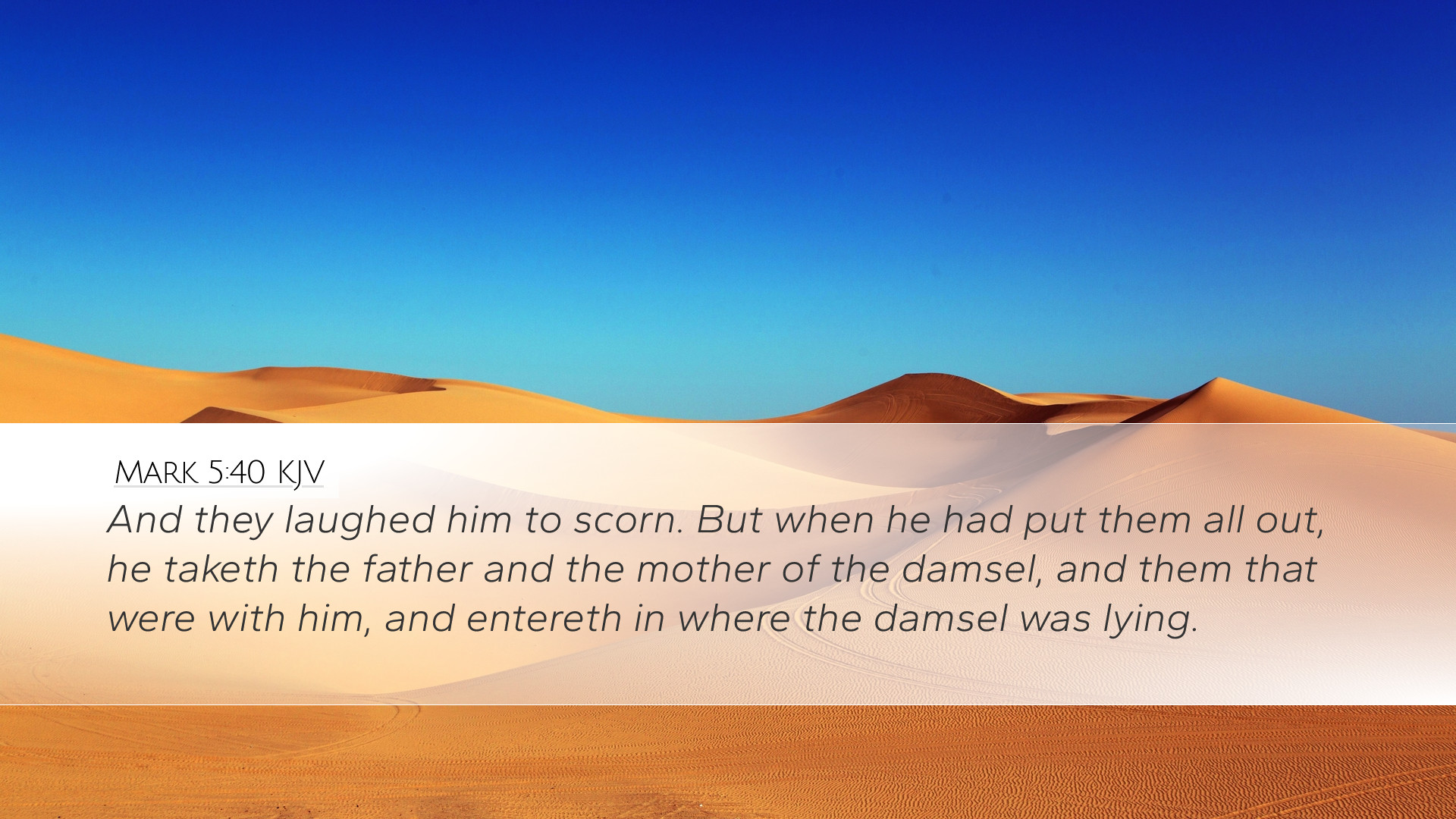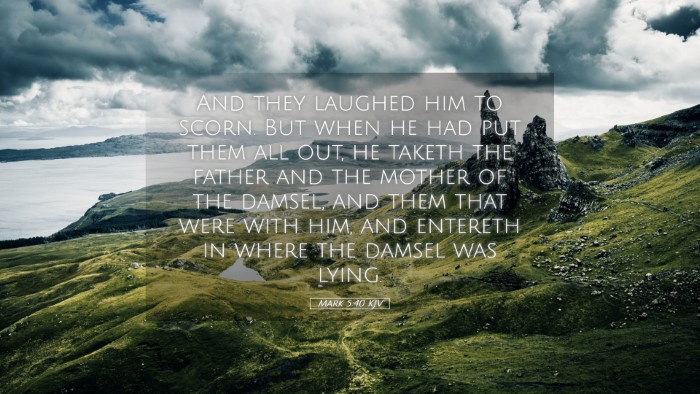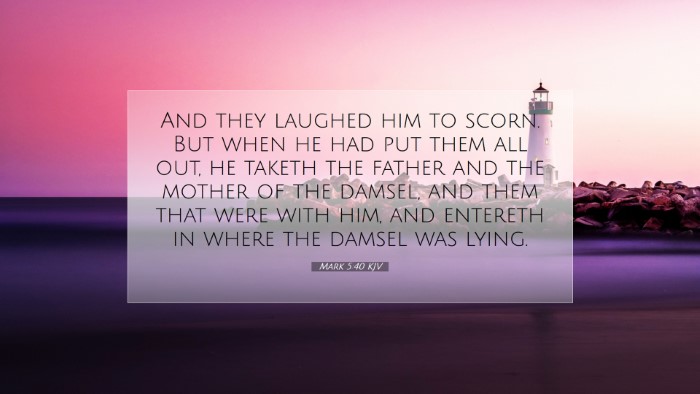Commentary on Mark 5:40
Mark 5:40 states: "And they laughed him to scorn. But when he had put them all out, he taketh the father and the mother of the damsel, and them that were with him, and entereth in where the damsel was lying." This verse is situated within the miraculous account of Jesus raising Jairus' daughter and offers profound insights into faith, skepticism, and the divine authority of Christ.
Contextual Background
The narrative occurs as Jesus is interrupted on his way to heal the daughter of Jairus, a synagogue leader. The interjection of the woman with the issue of blood provides a notable juxtaposition, displaying the power of faith in both circumstances. The reaction of those present reveals societal attitudes toward death and the miraculous.
Insights from Commentaries
Matthew Henry's Commentary
Matthew Henry notes, "The laughter of the crowd reflects a profound doubt and disbelief in the power of Jesus." Their scorn illustrates how common and yet tragic it is for humanity to dismiss the divine workings in the face of natural circumstances, particularly death.
Henry proceeds to highlight the significance of Jesus' actions: "He removed the scoffers from the scene, indicating the need for faith to witness miracles." This sets a tone of exclusivity, suggesting that divine operations often require an environment conducive to faith.
Albert Barnes' Notes
Albert Barnes adds weight to the reaction of the crowd, indicating that it was customary at funerals for mourners to express their grief loudly. "The laughter was not simply mockery but was rooted in a cultural mourning expectation," says Barnes. This understanding of the social context underscores the challenge facing Jesus amidst the grief of society.
Furthermore, Barnes highlights the act of dismissing those who laughed: "By expelling the mockers, Jesus demonstrates a deliberate call to faith from those who would witness His miraculous power." The act of entering alone with the child's parents signifies a personal and intimate encounter with the miraculous.
Adam Clarke's Commentary
Adam Clarke provides a unique observation regarding the choice of those Jesus took with Him: "He chose only the child's parents and a select few disciples, suggesting that faith is often a personal journey and not contingent on the multitude." Clarke emphasizes that faith requires grounding in personal belief rather than in public consensus.
Furthermore, Clarke interprets the act of laughter as exposing human weakness in understanding divine truth: "This laughter is emblematic of disbelief that often accompanies human situations beyond comprehension." Instead of despair, Jesus encourages a radical faith that engages with the impossible.
Thematic Reflections
- Faith and Skepticism: The juxtaposition between faith and skepticism is evident. The crowd represents a societal norm, while Jesus invites us to a deeper understanding of faith that transcends societal expectations.
- The Authority of Christ: The authority of Jesus over life and death is emphasized. His ability to perform miracles is not merely about the act itself but also about establishing His sovereign power over all aspects of existence.
- The Essence of Community in Faith: The inclusion of the parents signifies the importance of familial support in times of crisis, as well as the necessity of a believed community when approaching miracles.
Conclusion
Mark 5:40 encapsulates a significant moment wherein the divine intersects the human experience, challenging believers to confront their beliefs amidst doubt. The commentaries of Henry, Barnes, and Clarke harmoniously guide pastors, students, and theologians through the text, revealing the layers of human reaction to the miraculous. It is a call for believers to move beyond skepticism, embrace faith, and recognize the sovereignty of Christ in our lives.


